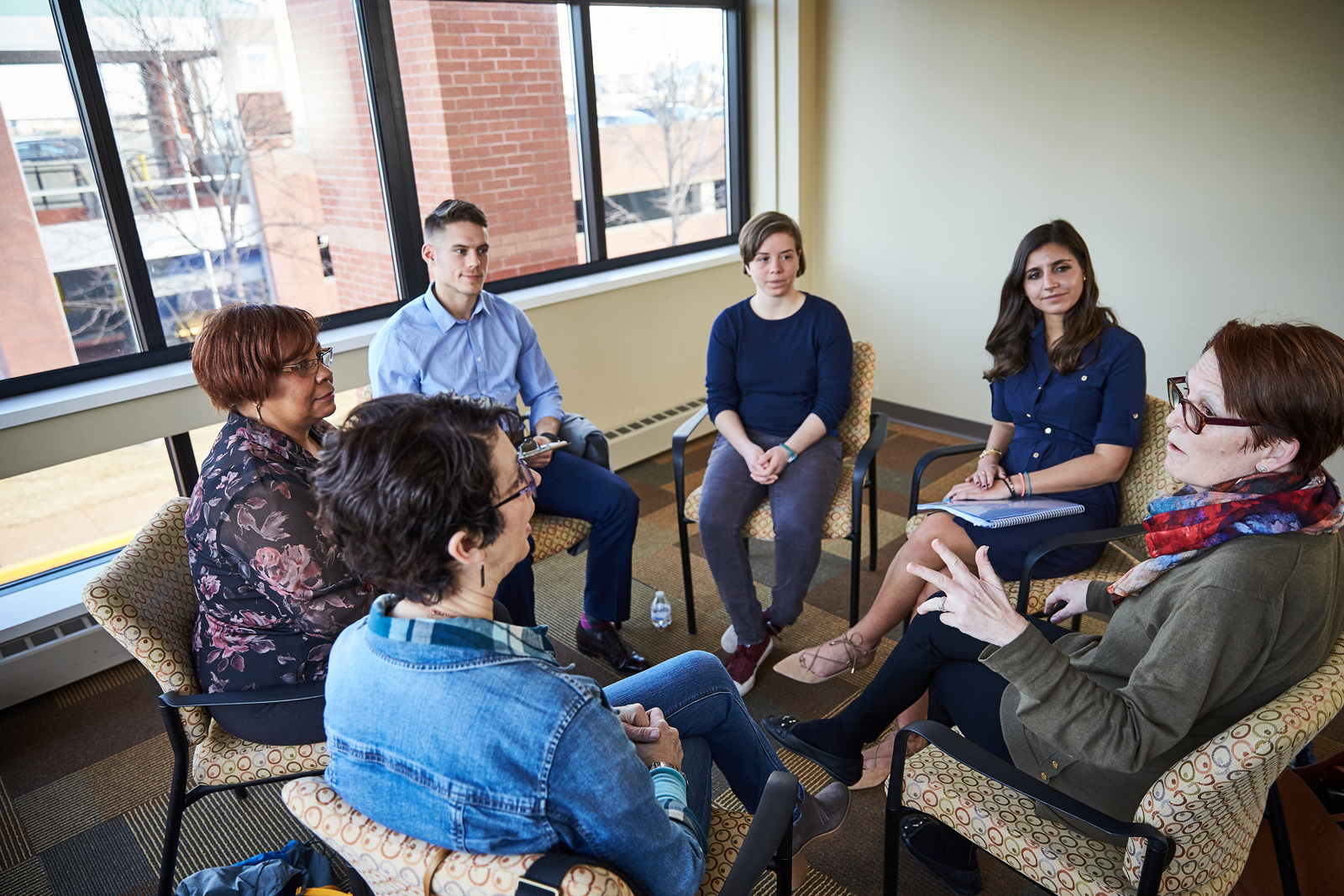Social Work Programs
Saint Louis University's social work programs prepare students to excel as social work leaders who engage on the frontlines addressing today’s most critical issues.
Students in SLU's social work programs experience a curriculum that integrates knowledge and skills with field experience. SLU social work students graduate ready to help individuals, families, groups and communities address challenges in their lives.
No matter which program you choose, you’ll experience:
- Small class sizes, making it easier for students to connect with professors and their peers.
- Courses taught by full-time faculty.
- Practicum and service learning opportunities.
- An education that prepares you to excel in multidisciplinary practice settings including health, schools, criminal justice, and community-based settings.
School of Social Work’s ranking among all social work schools nationally by U.S. News & World Report in 2024.
Sites social work students can choose from to gain field experience.
Explore Your Options
- Social Work, Minor
- Social Work, B.S.
- Social Work, B.S. to Social Work, M.S.W. (Accelerated)
- Social Work, M.S.W.
- Social Work, Ph.D.
Dual Degree Programs
- Social Work, M.S.W. and Applied Behavior Analysis, M.A. (dual)
- Social Work, M.S.W. and Criminology and Criminal Justice, M.A. (Dual)
- Social Work, M.S.W. and Law, J.D. (Dual)
- Social Work, M.S.W. and Public Health, M.P.H. (Dual)
Program Mission
Social Work, B.S. Mission Statement
Saint Louis University’s Bachelor of Science in Social Work (B.S.S.W) program prepares students for generalist practice with a commitment to social justice and the empowerment of vulnerable and oppressed populations. The B.S.S.W. program strives for a dynamic community of learning with excellence in teaching, research, and service.
The B.S.S.W. program’s mission includes, at its core, the preparation of social work students for generalist practice. Integral to this preparation are curricula that characterize the knowledge, values, and skills of the profession and are based upon the profession’s history, purposes, and philosophy. The B.S.S.W. program’s mission also reflects the importance of generating social work knowledge through the inclusion of research as a basic component of the B.S.S.W. program’s community of learning. The B.S.S.W. program’s mission is also consistent with the social work profession’s values. The mission incorporates two key values of the social work profession: social justice and empowerment of vulnerable populations.
Social Work, M.S.W. Mission Statement
Saint Louis University’s Master of Social Work (M.S.W.) program prepares students for professional practice with a commitment to social justice and the empowerment of vulnerable and oppressed populations. The M.S.W. program strives for a dynamic community of learning with excellence in teaching, research, and service.
Gain a Unique Perspective
SLU's multidisciplinary School of Social Work offers degrees in criminal justice and applied behavior analysis in addition to social work, allowing our students to take elective courses in a wide range of areas that provide them with a unique perspective and knowledge base not available in traditional social work programs.
The programs promote practice with an intentional focus on social justice integration. As a student in the program, you'll gain the foundational skills to improve the quality of life for individuals, families, and communities faced with difficulties such as poverty, serious illness or disability.
Graduate Ready to Make a Difference
Courses in SLU’s social work program focus on critical thinking about complex issues that impact and transform social determinants of health for diverse communities, families and individuals. Hallmark classes on ethics and social justice prepare students to tackle the challenging issues and be leaders in the field.
Graduates of SLU's social work programs are prepared to serve humanity in a variety of capacities. From community action agencies like Assini Houses and Thomas Dunn Center, to service programs like the Jesuit Volunteer Corps, to direct work with clients and in clinical practice at places such as Places for People, Nurses for Newborns, Queen of Peace and St. Patrick's Center. SLU's social work graduates empower, enhance and advance individuals, families and communities.
Students may also consider continuing their education by pursuing doctoral degrees in social work or advanced degrees in related areas such as law, public policy and criminal justice.
